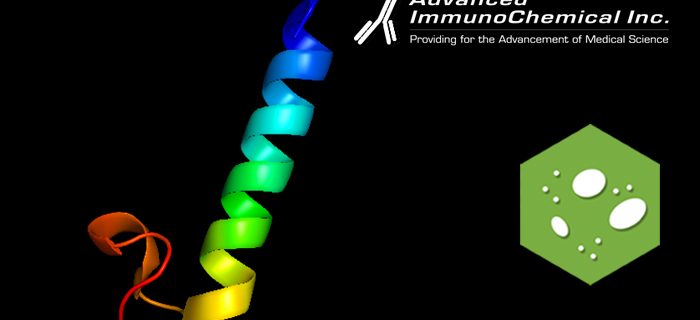Open full Procalcitonin AssayNotes pdf file
Procalcitonin (PCT) is a small protein (~13 kDa) that is synthesized by the C-cells of the thyroid glands. It is considered to be the main marker of disorders that are accompanied by systemic inflammation and sepsis.
PCT is encoded by the CALC-1 gene and it is the precursor of the calcitonin hormone. It is produced from a 141 amino acid long pre-procalcitonin. After removal of the signal peptide (amino acids 1-25), the 116 amino acid long PCT undergoes successive cleavages to form three molecules: N-terminal fragment (N-terminal PCT, 57 amino acid residues (a.a.r.)), calcitonin (32 a.a.r.) and katacalcin (21 a.a.r.).
PCT belongs to a family of related proteins (the CAPA peptides family), which also includes calcitonin, the calcitonin gene-related peptides I and II, amylin and adrenomodulin.
Ordering Information:
Monoclonal Mouse Anti-Procalcitonin
Monoclonal Mouse Anti-human Calcitonin
Monoclonal Mouse Anti-human Calcitonin, In vitro
Polyclonal Goat Anti-Procalcitonin
Recombinant human Procalcitonin
References:
1. Assicot M, et al. (1993) High serum procalcitonin concentrations in patients with sepsis and infection. Lancet 341(8844), 515-518.
2. Linscheid P, et al. (2003) In vitro and in vivo calcitonin I gene expression in parenchymal cells: A novel product of human adipose tissue. Endocrinology 144, 5578-5584.
3. Simon L, et al. (2004) Serum procalcitonin and C-reactive protein levels as markers of bacterial infection: A systematic review and meta-analysis. Clin. Infect. Dis. 39, 206-217.
4. Sponholz C, et al. (2006) Diagnostic value and prognostic implications of serum procalcitonin after cardiac surgery: a systematic review of the literature. Critical Care 10, R145. 5. Meisner M and Reinhart K (2001) Is procalcitonin really a marker of sepsis? Int J Intensive Care 8(1), 15-25.
Please visit us at AdvImmuno.com to see our other Inflammation Biomarkers.


